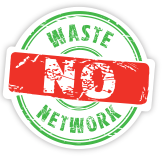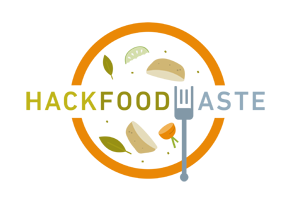17-9-2014 |The Eindhoven Hack Food Waste will take place on 17 and 18 October 2014 as the opening event of Agri meets Design during the upcoming Dutch Design Week. Participants in the Eindhoven Hack Food Waste will explore the possibilities using available knowledge, data, and technology to reduce food wastage. From hacker to farmer and designer to government official, everyone is invited to contribute, and help make a difference that really matters!
The Problem
Millions of people around the world are starving while the scarcity of raw materials increases and availability of agricultural land decreases. At the same time that the world population is rapidly growing, a third of all food produced for human consumption ends up as waste. The problem of food wastage is complex and can occur anywhere along the food chain from production to retail to consumption. During production, food waste can result from a lack of agricultural know-how, improper handling, transportation, or storage. On the retail side, supermarket, restaurant, and catering practices can lead to further losses. And in Western countries, consumers tend to over-buy and end up throwing away food worth billions. There stands a lot to be gained from taking on the challenge of food waste according to Sijas Akkerman, head of the Department of Food at ‘Natuur & Milieu (Nature & Environment) and Hack Food Waste partner, “Our research shows that 78% of the Dutch really hate the idea of food waste. The consumer can help, for example, by asking for a doggy bag in a restaurant. But, consumers also want to see smarter production practices.”
The Potato Chain
During Hack Food Waste, we have chosen to focus on the potato chain as an example of food chain links and interactions between them, and how we can apply data and technology driven solutions. Ruud Huirne, Head of Food & Agri at Rabobank in the Netherlands and Hack Food Waste partner says, “The problem of food waste, in any chain, cannot possibly be solved by any one party alone. Instead, we need the combined knowledge and expertise of all parties in the chain. We serve the entire chain and enthusiastically support chain-wide collaboration.”
The Challenges
We will look into several challenges during Hack Food Waste. For example, how can we open up access to precision data for more efficient production, or limit losses in international trade, such as those resulting from the recent Russian boycott. We will also be working with challenges concerning consumers, transporters, processors, retailers, and caterers, as well as new perspectives such as urban farming. Besides the potato chain, there is also room for participants and teams to work on their own ideas, or how technology can provide new ways of working together. Cindy Koolhout, Business Manager Food & Agri at Rabobank in the Netherlands explains, “We want to meet the challenge of how food waste in the potato chain can be reduced even more. For example, by informing consumers about how they can reduce waste by purchasing and preparing unpeeled potatoes. Or, how we can increase insight into losses that occur during cultivation. How can we make that simple and easy to do?”
Hack Food Waste
We live in a time where an immense amount of data is available that represents a largely untapped potential for innovation, especially when it comes to complex social issues. With Hack Food Waste, we want to change that. We invite ‘hackers’ (specialists, coders, GIS experts, designers, engineers) to invest 32 hours of their time in shedding light on the issues surrounding food waste. Together with farmers, citizens, scientists, and government officials, we will investigate the opportunities offered by today’s data and technology. Or, as ZLTO’s Elies Lemkes stated, “Bring farmers and hackers together, and sparks will fly. From the combination of farmers’ common sense and the potential for innovation, we can help to rid the world of food waste.” You do not need to be a ’tech geek’ to make a valuable contribution in meeting these challenges! Sign up for the Hack Food Waste on 17 and 18 October 2014 during the Dutch Design Week in Eindhoven, the Netherlands. For more information please go to: hackfoodwaste.polderhack.nl or #hackfoodwaste.
Hack Food Waste is a collaboration between Polder Hack Productions, Rabobank, and the Department of Nature and Environment, and is made possible by the Ministry of Economic Affairs, ZLTO, and the province of North Brabant.
Source: Hack Food Waste

